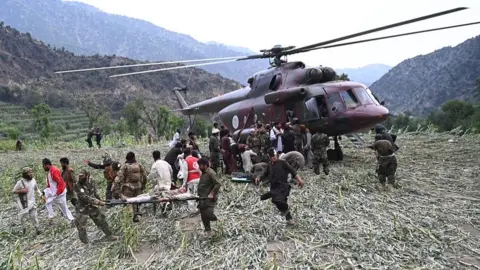A fresh magnitude-5.2 aftershock has struck eastern Afghanistan, just two days after a powerful quake killed more than 1,400 individuals and injured around 3,000 others, according to the Taliban government.
Rescue operations following the earthquake are being severely impacted by landslides blocking access to remote villages, with helicopters being deployed for search and rescue missions.
The Taliban, which is recognized only by Russia, has made an appeal for international assistance following the disaster. The United Nations has released emergency funds to aid the recovery efforts, and the United Kingdom has pledged approximately £1 million (about $1.3 million) in support.
Afghanistan is known to be prone to seismic activity, but the recent quake was one of the strongest experienced in years. The aftershock occurred on Tuesday at 12:29 local time, approximately 34 kilometers from Jalalabad, the country's fifth-largest city, and at a shallow depth of just 10 kilometers.
Reports from the Sawkai district, among the hardest-hit areas in Kunar province, describe a strong jolt felt by residents. Fortunately, there have been no new reports of damage or casualties linked to the aftershock.
The ongoing rescue effort is concentrated in rural Kunar province, where the bulk of initial casualties occurred. Survivors are being airlifted from the rubble of destroyed homes. One survivor, Bas Marjana, recalled a harrowing experience of being trapped beneath rubble, losing several family members, including her daughter-in-law and eight grandchildren.
As humanitarian organizations rush to provide aid, teams from Save the Children have arrived to assist the thousands of individuals requiring food, water, and shelter. Medical personnel have also reported alarming conditions, with many resorting to unsafe drinking water due to a lack of supplies.
Tragically, Nader Khan, a resident who lost multiple family members, has expressed profound grief over the fate of his loved ones, highlighting the emotional and physical toll this disaster is taking on the community.
The earthquake struck Afghanistan at a particularly vulnerable time, with the country facing severe drought and food insecurity exacerbated by significant reductions in aid. International aid from countries like India, China, and Switzerland has begun to flow in, though local capacities remain strained.

















